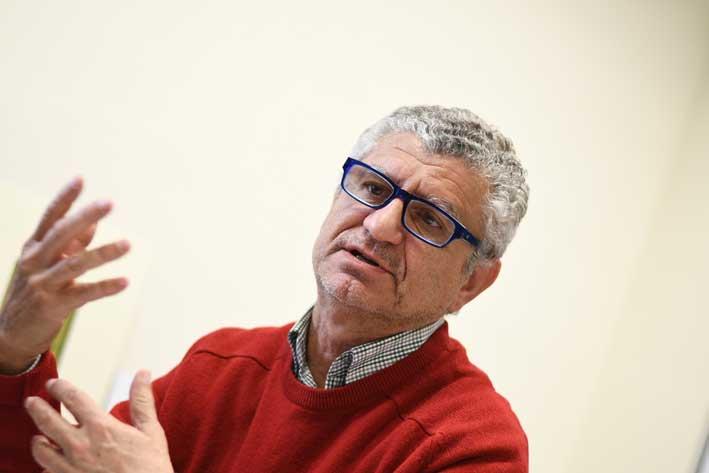Dr David Fabri, who has been involved in consumer protection since 1978, spoke to The Malta Independent ahead of the 4th Annual Consumer Law and Policy Conference that was held at the Chamber of Advocates in the Law Court earlier this week.
“The role of EU consumer protection legislation is rather ambiguous. At the start, it gave huge impetus and Maltese consumer law greatly improved as a result of our entrance into the EU. In fact between 2000-2005 there was a lot of new legislation which we had to implement as it was a condition of membership.”
“That programme would have taken 12 years to implement had we not been on the way to EU membership. This has also, however, had a negative side as nobody wants to do anything unless there is direction from Brussels.”
“If Brussels doesn’t do anything since it is more pro-business and there is less political consensus on more pro-consumer measures, then nothing happens, whereas originally Malta had its own agenda. This is a sadly ironic twist, that EU law in the first years proved to be a huge boon for Maltese consumers, yet now we seem to play the game that if Brussels doesn’t order us to do something we won’t do it ourselves as we don’t want to be holier than the Pope.”
“This is unfortunate, as Malta seems to have lost its ability to create its own consumer protection legislation. In the 90s, political parties used to compete through their electoral programmes on consumer protection measures, and now one would barely find anything on consumer protection as the fashion has changed. All this pro-business talk actually obstructs pro-consumer measures.”

Is there anything issue right now, which requires more focus in terms of consumer protection?
“More than anything else, it’s the enforcement and the lack of a show of energy and interest on consumer protection. Authorities seem to be very non-proactive.
As an example, let’s take the Volkswagen emission case, which I have a whole file on. In the USA, Germany and the UK there have been class-action suits, German investigations into the Merkel government, questions being asked like; ‘was there connivance between government and industry?’ And what happens in Malta? Absolutely nothing. I know people, and I have asked ‘what about Maltese owners of these Volkswagen Diesel engines? They are still awaiting guidance from the Maltese Authorities. When one asks the Malta Competition and Consumer Affairs Authority they will tell you that they are still awaiting guidance from Europe. So Europe is sometimes the excuse for inertia.
In other countries the authorities have reacted quite viciously, such as the USA. Every purchaser of one of the vehicles involved has the right to have their car fixed, and also receive compensation for the deception. This is not just a product issue, but a quality and product description issue. Unfortunately it caused much more than the promised emissions.”

You’ve previously criticised the range of duties that the Office of the Arbiter for Financial Services has been given. One year on, do you still have these concerns?
This conference will be a chance for us to find out what is going on, as to be honest, I don’t know. There are two members from the Office of the Financial Arbiter who will speak; one from the Administrative side of the Board, and the Arbiter himself.
The Arbiter is a judge-like figure, and if one looks at how a judge operates in Malta, they don’t have a Board or anything of the sort. So we would be interested to see how they (the board) would justify their own expenses etc.
There is a distinction between the Board and the Arbiter, as the board does everything except deal with the litigous aspects. Presumably they would receive all the requests for information, complaints and try to mediate at that level. But there needs to be a wall between those who handle mediation, negotiation and provide client advice, and the Arbiter, where I hope there are sufficient safeguards for the Arbiter Reno Borg to do nothing but receive and resolve disputes. Hopefully they will be able to persuade us. I have an open mind about it, that the two sides are acting independently of each other. So this is an opportunity to see how many judgements were given, what problems arose and what has happened over the past year etc.

You had also criticised the legislation creating the office, as the law did not require the Arbiter to be a lawyer (although the current Arbiter, Dr Reno Borg, is a lawyer).
There would be a risk in having legal issues determined by a non-lawyer, which should never happen.
When you see that the law allows a decision to be based on equity, there is a risk of a non-lawyer just applying equity, which is sometimes vague and abstract. There might be temptation for a non-lawyer to keep referring to a concept which actually would deprive the whole system of certainty and predictability. Having a lawyer applying the law, at least there is certain predictability which is part of the reasons for having law in the first place.
I’m assuming they can appeal before the courts.
Unfortunately an appeal can occur in every case, which was not the original idea. The original idea was for things to stop with the Arbiter to have swift inexpensive decisions. When government gave in to industry demands that there should be an appeal, part of the reason for having an Arbiter is lost. They can appeal on anything, even on facts, and not just law. So if, for example, Bank of Valletta comes forward with deep pockets and appeals every case lost, the net result would be that consumers would have to wait a long time for a final decision.
It would go into the court world, when the idea of an Arbiter is to avoid the court scenario and have a more consumer friendly procedure.

You mentioned that enforcement of consumer law has become reactive… would one such example be the insolvency fund for travel operators?
That is another example of where government allowed itself to be too influenced by business pressures. Under the Package Travel Directive, the insolvency fund should have been setup when Malta joined the European Union. Usually these funds are setup by the industry themselves, where the operators would contribute something every year so that if one of the goes bust, consumers can receive something back from that fund. The same thing happens in bank deposit schemes and investor protection schemes. That is part of the EU consumer protection mechanisms.
In the tourism sector, the tourism sector directives were not implemented by the Department of Consumer Affairs, but by the tourism authority, which is not really a consumer protection agency but is more of a tourism promotion agency and has been like that from its beginnings back in the 1950s. What happened was that the fund had not been setup at all.
I think, without me attributing any bad motives, that the EU may have understood that everything was implemented correctly. There may have been a checklist, and if one checks the law there is reference to the insolvency fund, and the ministry simply had to make rules and implement it, which had not happened earlier.

Before the press conference held by the ministry in 2016, there was the case of Fantasy Tours becoming insolvent, which brought things to a head. There was no fund at all and the Maltese government was caught out as just having the words of an insolvency funds, but never actually got around to gathering the funds for it to be implemented.
Government stepped in at the last minute, like the 7th cavalry and said that they would pay everything themselves. So now the taxpayer will pay for something that should have been paid for through travel agent contributions since 2004. We have reported the matter to the European Commission now.”
Referring to the announcement by Tourism Minister Edward Zammit Lewis regarding a legal notice that would set up an insolvency fund for package travel announced last October, Dr Fabri, in November, published an opinion article on the matter, in which he argued that consumers do not enjoy automatic representation in the five-member managing board on the fund, and that while it was reported by the media that tour operators will contribute to the fund according to their size and market share, the regulations did not stipulate this and gave no direction.
The 4th Annual Consumer Law and Policy Conference is now an established event within the Commercial Law Department’s calendar. This will see Adviser to the Director for Consumers in the Directorate General for Justice and Consumers at the European Commission Dr Carina Törnblom delivering the keynote speech. In addition, the Arbiter for Financial Services will also be present.